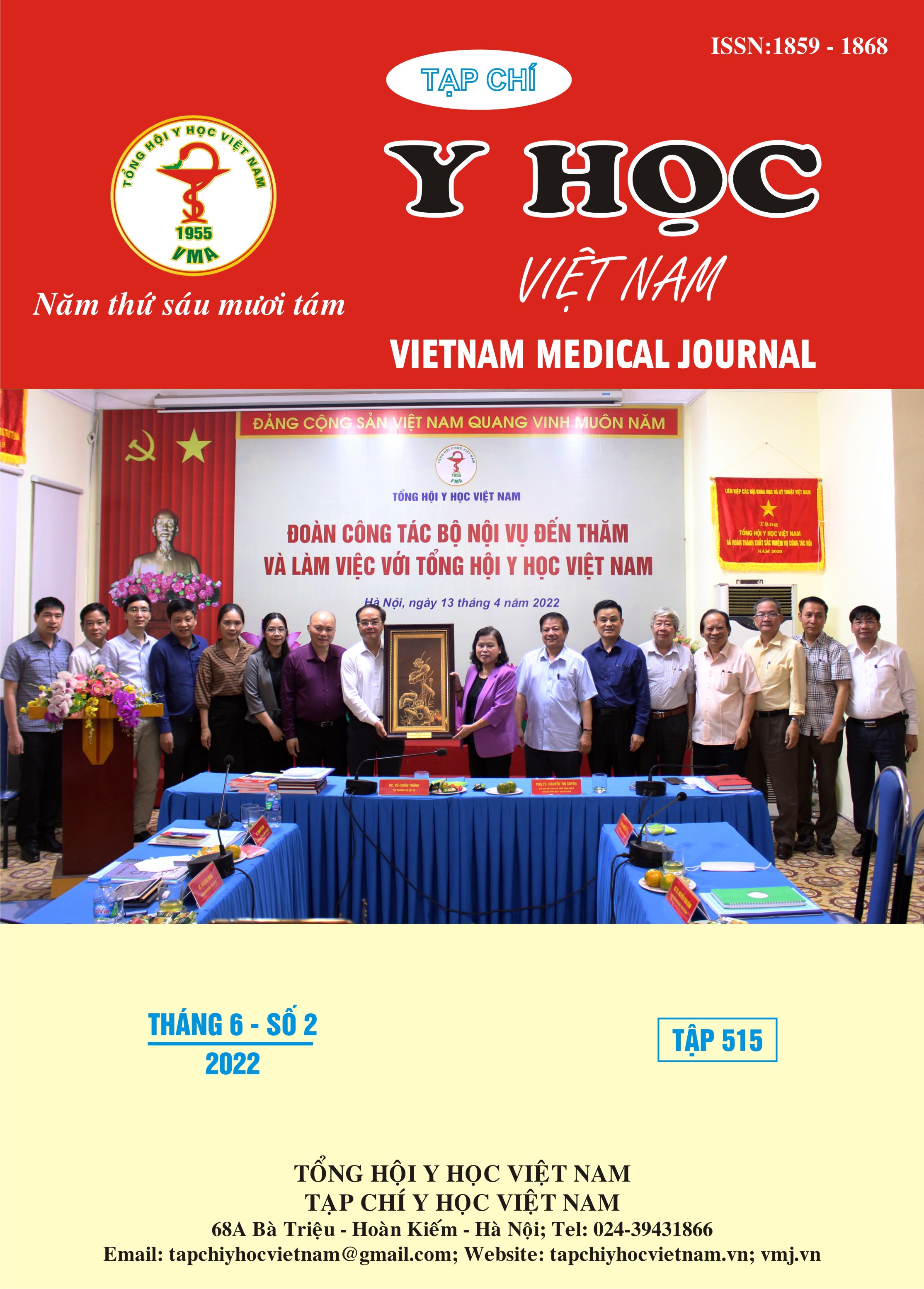TYPE 2 DIABETES SELF-MANAGEMENT BEHAVIORS DURINGCOVID-19
Main Article Content
Abstract
Background: In patients with type 2 diabetes, adherence to self-management behaviors (such as taking medication, healthy eating, being active, monitoring, healthy coping, problem – solving and reducing risks) is a key element in treatment success. These self-management behaviors were negatively affected by COVID – 19 control methods. The study's purpose was to investigate the problems with self-management behaviors and the impact of the COVID – 19 outbreak on these behaviors in type 2 diabetic patients. Subjects and methods: 99 type 2 diabetes patients managed outpatient at Huu Nghi hospital were surveyed in a cross-sectional study using a telephone interview. Results: Non-adherent patients accounted for 52,7% of the total. The majority of patients (66,7%) reported at least one drug – related problem (DRP) in using glucose lowering medications. The COVID – 19 pandemic caused patients to postpone re-examination and refill medications (18,2%), reduce their physical exercise (28,3%), and affect their mental health (32,3%). Conclusion: The extent of self-care practices in type 2 diabetes patients was poor, and the COVID – 19 pandemic had negative impact on them, thus interventions are needed to improve these issues.
Article Details
Keywords
diabetes, self-management, COVID- 19
References
2. Lê Thị Hương Giang (2013), "Thực trạng và một số yếu tố liên quan đến tuân thủ điều trị bệnh đái tháo đường typ 2 của người bệnh đang điều trị ngoại trú tại bệnh viện 198 năm 2013", Y học thực hành, 893(11), pp. 93-97.
3. Barone M. T. U., Harnik S. B., et al. (2020), "The impact of COVID-19 on people with diabetes in Brazil", Diabetes Res Clin Pract, 166, pp. 108304.
4. Chan A. H. Y., Horne R., et al. (2019), "The Medication Adherence Report Scale (MARS-5): a measurement tool for eliciting patients' reports of non-adherence", Br J Clin Pharmacol, pp.1.
5. Fisher L., Glasgow R. E., et al. (2008), "Development of a brief diabetes distress screening instrument", Ann Fam Med, 6(3), pp. 246-52.
6. Huynh G., Tran T. T., et al. (2021), "Diabetes-Related Distress Among People with Type 2 Diabetes in Ho Chi Minh City, Vietnam: Prevalence and Associated Factors", Diabetes Metab Syndr Obes, 14, pp. 683-690.
7. Mogre V., Johnson N. A., et al. (2019), "A systematic review of adherence to diabetes self-care behaviours: Evidence from low- and middle-income countries", J Adv Nurs, 75(12), pp. 3374-3389.
8. Powers Margaret A., Bardsley Joan, et al. (2016), "Diabetes Self-management Education and Support in Type 2 Diabetes: A Joint Position Statement of the American Diabetes Association, the American Association of Diabetes Educators, and the Academy of Nutrition and Dietetics", Clinical diabetes : a publication of the American Diabetes Association, 34(2), pp. 70-80.
9. Yao J., Wang H., et al. (2019), "The association between self-efficacy and self-management behaviors among Chinese patients with type 2 diabetes", PLoS One, 14(11), pp. e0224869.


